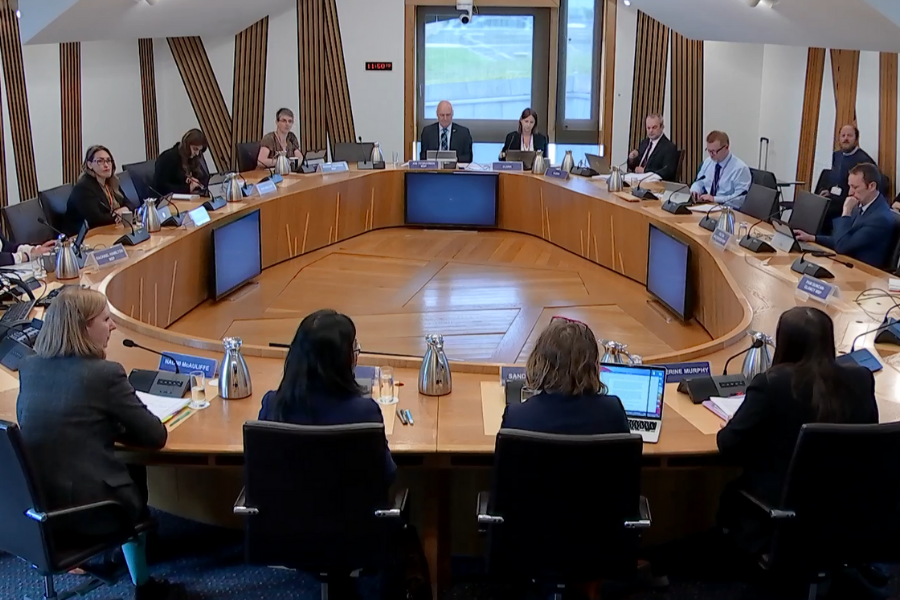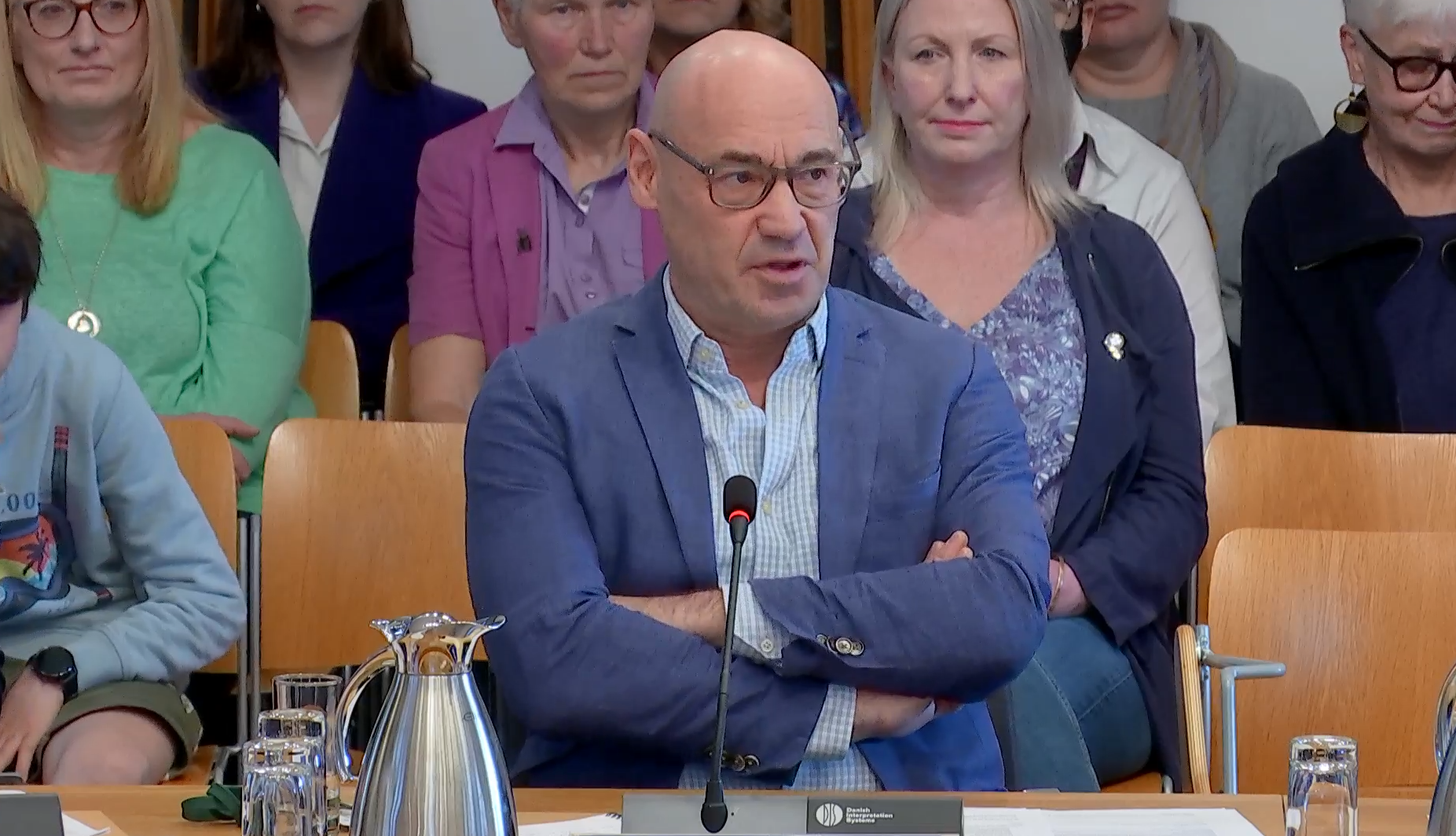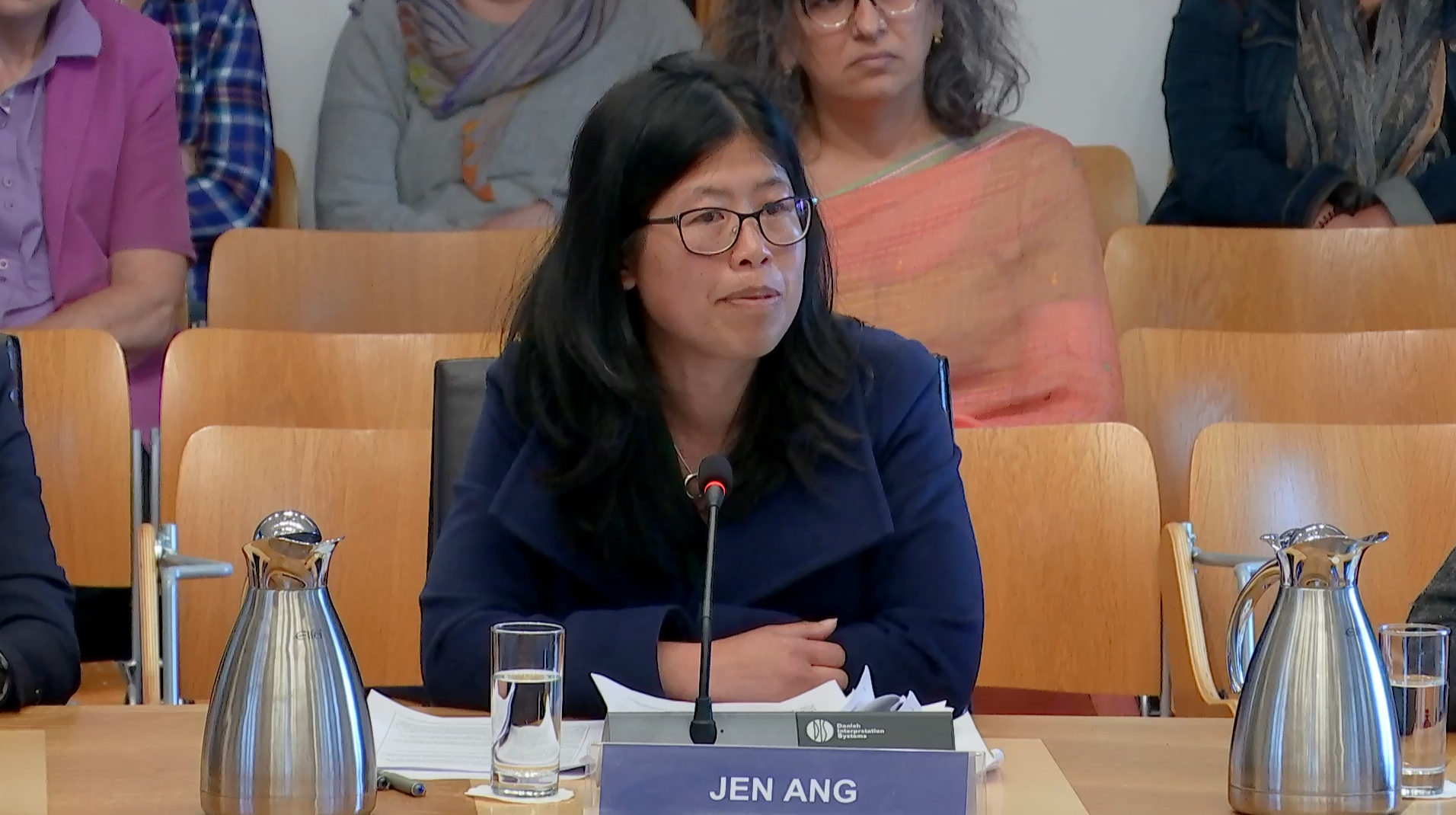
THERE is no evidence that self-ID for transgender people will cause a “huge widening up” of the number of applications for a Gender Recognition Certificate (GRC), MSPs were told.
During a lengthy evidence session to the Equalities, Human Rights and Civil Justice Committee on Tuesday, politicians heard representations from both sides of the GRA reform debate.
Self-identification would remove the requirement for a medical diagnosis of gender dysphoria for transgender people in Scotland if the reforms are passed.
However, campaigners have said that they expect the number of trans people seeking a GRC will be along the same proportion as Ireland, who introduced self-ID in 2015 and has a similar population size to Scotland. This equates to fewer than 900 people.
Malcolm Clark, head of research at the LGB Alliance, claimed that the number of gay people did not go up after Section 28 was scrapped in Scotland in 2000, but that the number of young people identifying as transgender or non-binary has.
This point was disputed on social media by Kieran Aldred, head of policy at Stonewall, who cited ONS sexual orientation statistics to show that the number has “consistently increased” across those defining themselves as gay, lesbian and bisexual, particularly among young people.
And, late in the evidence session, pro-GRA campaigners told MSPs that they expect if the act is passed, there will be a similar number to Ireland after the country introduced self-ID.

Clark claimed that the reason GRA reforms are “not the same” as scrapping Section 28 is because after gay rights were “given, the percentage of gay people in the population didn’t go up”.
He added: “However, in the last 10 years, the number of kids who say they are trans or non-binary or queer is soaring. So there is something else happening here and I would only say that we should look at that.”
SNP MSP Karen Adam interjected to ask if it could be because “we’ve created a safer society and it wasn’t really as safe back in the 80s to come out”.
Clark again disputed this but admitted it was safer to be gay in society now than in the past.
Stonewall’s Aldred later pointed out on Twitter than ONS figures show an increase in the proportion of gay men in the UK by two-thirds over the past six years, and over the same time period there was a three-fifth increase in the proportion of UK lesbians, the number of bisexual men has trebled and the number of bisexual women has doubled.
Catherine Murphy, executive director at Engender, later told MSPs that GRA reform “may lead to some uptick potentially” amongst trans people, but hadn’t seen any evidence that this would apply to a “broader” group of people.
She added: “We don’t see that this bill as it is written substantially changes you know, some of the current issues around the protection for women's equality etc so we haven't seen any evidence that this would lead from our perspective, to an enormous widening of the group of people who would want to seek a GRC.”
The LGB Alliance have claimed to Scottish Parliament that "after gays rights were given, the percentage of gay people in the population didn't go up, not at all." Let's leave aside no mention of bi people, to point out the obvious: this is false. 🧵@SP_EHRCJ @KarenAdamMSP pic.twitter.com/v235NTz76q
— Kieran Aldred (@thekieranaldred) May 31, 2022
Scottish Greens MSP Maggie Chapman then asked Naomi McAuliffe, Scotland programme director for Amnesty International Scotland, if she sees the removal of the medical element of a required disagnosis of gender dysphoria as “problematic”.
McAuliffe said that she has seen no evidence of this becoming an issue in other countries, adding that very few trans people in Scotland hold a GRC because of the barriers they face.
She added: “So there will be a widening in that those people who don't currently have one may want to get one if they need to change documentation.
“But we've seen for example in Ireland, which has got an equivalent of a population to Scotland of around about 5 million people, they've had fewer than 900 applications when self ID was introduced. So that's pretty much commensurate with the population of trans people that we would expect.”
Jen Ang, director of policy and development at JustRight Scotland, added: “Should it be easier for people who want to obtain a GRC to obtain one after this? Yes, absolutely.
“Is that a problem? It shouldn't be, that is the purpose of the reform.

“I think that there has been concern and discussion about whether a much larger group of people than those who are intended to benefit from this might be eligible under the scheme and I suppose my response would be that there are clear safeguards in place already.”
Rachael Hamilton, Tory MSP, asked those giving evidence if they believed removing the requirement for a medical diagnosis creates the “unintended consequences of shielding a criminal”.
Sandy Brindley, of Rape Crisis Scotland, said that the charity has been trans-inclusive for 15 years and said they have had “no experience or reports of anyone abusing that system”, adding that a GRC is not a requirement to access services.







